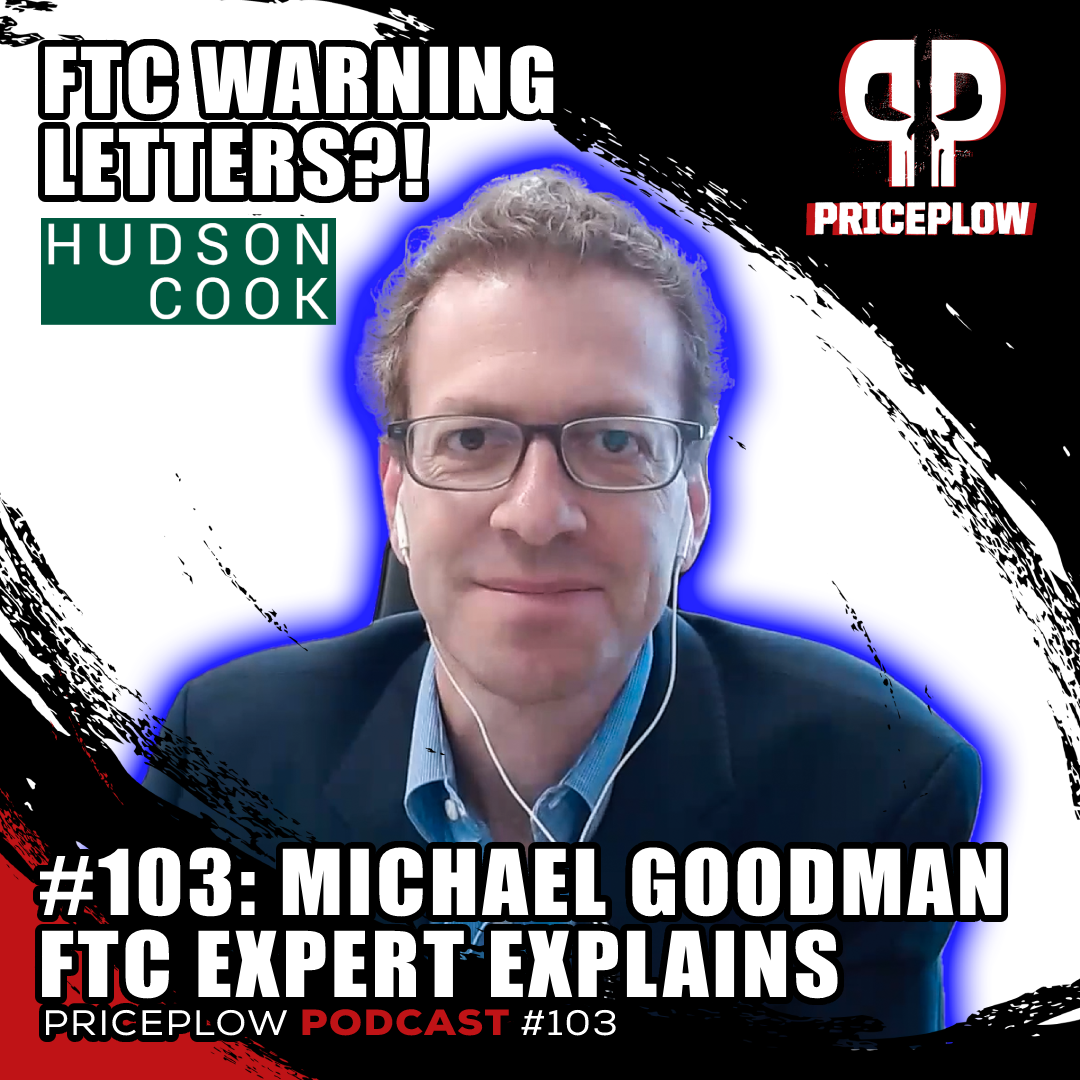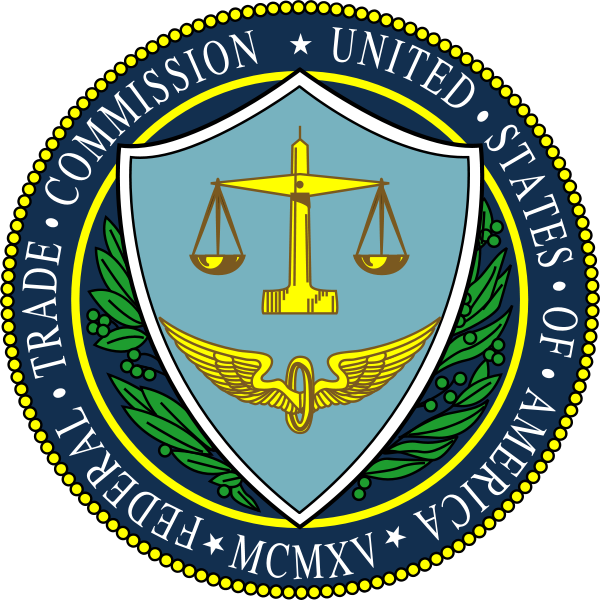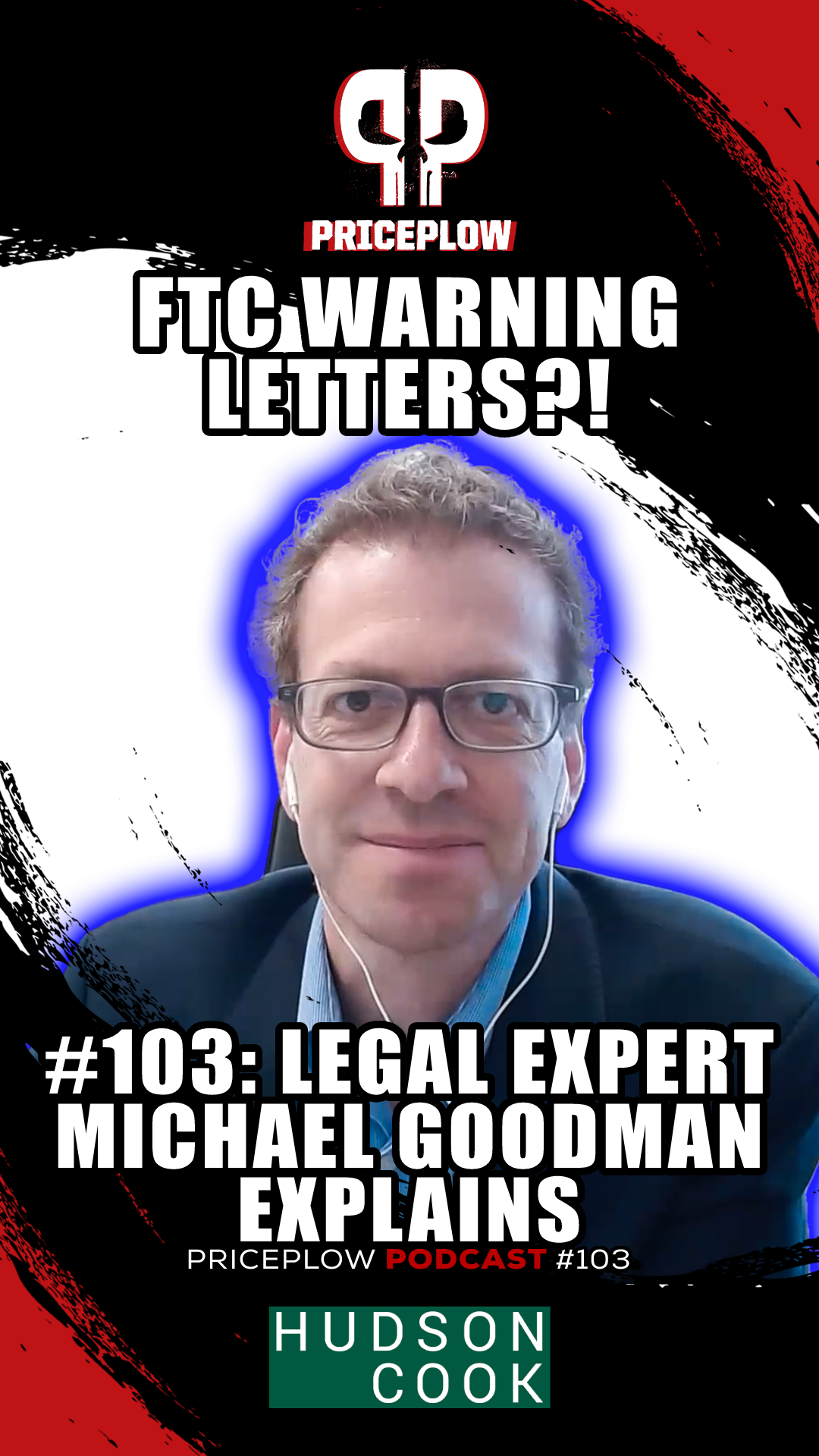FTC Expert Lawyer Explains the 700 Warning Letters: Michael Goodman of Hudson Cook LLP
In April of 2023, the Federal Trade Commission (FTC) unexpectedly sent warning letters[1,2] to about 700 drug companies and dietary supplement brands[3] regarding substantiation of their product claims. Their letters stated that there was no active investigation, and that “The fact that a company is on this list is NOT an indication that it has done anything wrong”,[3] but it obviously raised a great deal of concern in both industries.

Michael Goodman, an FTC Legal Expert / Lawyer at Hudson Cook LLP explains the FTC’s 2023 warning letters sent to 700 brands
To find out what was going on, and to get a general lesson in the concerns of the Federal Trade Commission, we brought on FTC subject matter expert Michael Goodman of Hudson Cook, LLP to explain the story. We retained Michael for a check-up on our website in 2018, and kept in touch because of his excellent work.
In this podcast, we get a great lesson on what the FTC cares about in terms of misleading product claims, and the legal process a company will find themselves in when the agency comes knocking on their door.
As for those FTC warning letters, the long story short is that they’re an unforeseen side effect of a 2021 Supreme Court decision,[4,5] and were sent as a preemptive measure in case the FTC were ever to want to seek financial penalties. In four words: “The clock has started”.
0:00 – Introductions: Michael Goodman and Hudson Cook, LLP
Mike introduces Michael Goodman, a regulatory expert and lawyer from Hudson Cook LLP, specializing in matters related to the Federal Trade Commission (FTC). Michael has previously assisted in reviewing their PricePlow’s content regarding sponsorship disclosures. Given recent FTC warning letters towards dietary supplement manufacturers,[1-3] they’ve decided to discuss FTC compliance, particularly for dietary supplement brands and stores.
Michael explains his career trajectory, from his beginnings at the FTC to his current position at Hudson Cook. His work involves reviewing ads for FTC compliance, wherein he adopts the perspective of a regulator to identify and mitigate any potential risks of FTC scrutiny. He also assists clients facing possible FTC enforcement action.
The discussion turns towards what FTC compliance means for their audience, including everyday consumers, brand owners, and large retail outlets. They decide to begin with the basics, discussing the FTC’s fundamental rules governing advertising. Michael breaks down the FTC’s mandate to prevent unfair or deceptive acts and practices, further explaining the concepts of “unfair practice” and “deception”. He also mentions how the FTC has developed guidance materials over time, such as the substantiation policy statement and the guide on endorsements and testimonials, which are of relevance to this conversation.
5:30 – How to look for misleading claims
Ben focuses on endorsements and product representation by businesses, especially given the recent FTC guidance directed at manufacturers, retailers, and ingredient creators. They discuss potential issues of misleading claims and possible harm to consumers.
Michael, from his perspective as a regulatory expert, emphasizes the importance of truth in advertising and the necessity to have concrete claims that can be backed up with evidence. He discusses the issue of unconditional claims, where clients may state a product will deliver a specific result, which isn’t always the case due to variations in people’s experiences.
He then introduces the concept of the FTC’s ‘substantiation policy statement’. It suggests that if an ad makes an objective claim (one that can be backed by data), consumers will believe that proper support exists for that claim, regardless of whether it’s explicitly stated. As such, Michael stresses the need for advertisers to have credible support for their claims when they release their ads, rather than trying to find support after the fact.
Lastly, he emphasizes that any support for performance claims should be in line with what the industry considers appropriate and reasonable. The FTC’s expectation is that proper support aligns with the standards of the specific context or industry.
9:15 – The FTC’s guidance for health products
Mike asks about the acceptability of animal studies as the basis for product claims. Michael mentions the FTC’s ‘Health Products Compliance Guidance’,[6] noting it provides specific insight into this matter. While animal studies can occasionally be acceptable, they must prove reasonable to rely on, or the advertiser could face exposure under the deception standard.
They then transition into a discussion on influencers, differentiating between those who operate as affiliates with coupon codes versus those paid directly for promotional content. Michael emphasizes that the FTC’s main concern is whether a company incentivized someone to promote their product. If the company did, it’s responsible for what the person says and must disclose the connection. The type of incentive doesn’t matter as long as the consumer’s knowledge of the relationship could potentially influence their evaluation of the claim.
13:15 – Disclosure of a paid relationship
Ben asks if using unsolicited user-generated content (e.g., testimonials) as promotional material subjects the company to FTC regulations. Michael clarifies that while there is no required disclosure of connection (since none exists), the company becomes responsible for the content. If a user makes a claim (even an exaggerated one), and the company uses it in marketing, they are accountable for its accuracy.
If the testimonial presents an unrealistic or non-typical outcome, the company should also disclose what the typical or generally expected performance would be. This is because the FTC found that simply stating “results not typical” was ineffective. The takeaway is that once a company uses user-generated content for promotion, they are responsible for ensuring its truthfulness and representativeness of other users’ experiences.
16:15 – Enforcement of regulations
Mike expresses concern about the FTC’s potential lack of enforcement, similar to the FDA, particularly among small brands. Michael acknowledges the FTC’s limited resources, suggesting that while the risk of getting caught may be low, the risk of serious trouble if caught is high. Consequently, it’s crucial for companies to take compliance seriously to avoid expensive and burdensome enforcement actions.
Ben asks about cooperation between large social media platforms and the FTC, particularly regarding ad reviews. Michael states that while some platforms may prohibit advertising for certain businesses or claims (e.g., Google), these reviews shouldn’t replace the scrutiny each company should apply to its own advertising.
21:00 – The process of enforcement
Mike asks Michael to describe the process of an FTC enforcement action. Michael explains that it typically starts with a Civil Investigative Demand (CID), which includes a suspension of document destruction, responding to FTC requests for information and potentially participating in investigational hearings. This process can be costly and time-consuming, often requiring a familiar lawyer to negotiate response times and scope.
Ben queries whether the FTC targets larger scale companies due to the high cost of investigations. Michael confirms that while the FTC isn’t limited to big businesses, they tend to focus on those causing significant economic harm or engaging in fraudulent activities. The FTC may also group cases together in a “sweep” for maximum deterrent effect.
27:00 – How often does the FTC take action on violations?
Ben raises a case from a group called Truth in Advertising (TINA) that targeted energy drink brands they accused of marketing to children. He asks how often FTC investigations begin internally versus externally and whether the FTC would be involved in issues of advertising to children.
Michael says the FTC’s investigations can originate from numerous sources, including Congress, consumer complaints, competitors, and even informal, anecdotal information. However, he notes a general hesitation from competitors or trade groups to report on each other due to fears of also drawing FTC attention to themselves.
In terms of advertising to children, Michael explains that the FTC has specific rules under the Children’s Online Privacy Protection Act (COPPA) to protect children’s information. The FTC may focus on advertising to children if it involves products harmful to them, such as e-cigarettes. Historically, the FTC was criticized for overreaching in this area and has since recalibrated its focus.
31:45 – What’s the hot topic right now with privacy?
Mike segues into data privacy and asks how it might be connected to the supplement industry. Michael identifies the main issue as companies monetizing consumer data without the consumers’ full understanding or consent. This practice, especially if the consumers weren’t aware or didn’t agree to it, can prompt scrutiny from the FTC.
When Mike asks how a company might change its policy on selling customer data, Michael explains that according to the FTC, a company is bound to its privacy promises indefinitely. If a company wants to change how it uses consumer data, it must secure new permissions from users, including those who joined under the old policy.
Moving to COVID-19 related health claims, Michael advises caution, emphasizing that robust support is necessary for any treatment claims to avoid negative attention from the FTC. He warns that FTC regulations cover not just the literal wording of an ad but also its overall impression and any reasonable interpretation. For example, a headline that makes a misleading claim might not be redeemed by fine print that clarifies it, and vague wording like “may support immunity” might not offer protection against claims of deception.
39:45 – The Supreme Court Decision that precipitated the warning letters
Ben enquires whether the FTC ever steps into the FDA’s territory, particularly regarding claims that certain supplements may support, but not treat, conditions like high blood pressure. Michael responds by pointing out that the FTC and FDA cover similar territory, but the FTC might defer to the FDA due to the latter’s specific expertise.
Mike follows up by asking about any noteworthy actions from the FTC’s notice letter that haven’t been covered in their discussion. Michael explains that the FTC started issuing these notices after the Supreme Court ruled that it couldn’t retrieve funds from companies accused of deceptive practices.[4,5] This decision caused the FTC to explore other means of penalizing offenders, such as rule violations. Another approach is through these “notice of penalty offenses”, which stipulate that companies previously notified of unlawful practices will be financially liable if they commit the same violation again. Thus, the 700 letters sent out can be seen as setting up future financial penalties if those companies continue violating FTC regulations.
This is basically the kicker of the entire podcast — “The clock has started.”
46:22 – Buzzwords
Mike and Ben discuss the implications of the FTC’s recent letter and question how companies were chosen for notification. Michael suggests that those who didn’t receive a letter are at less risk of being penalized, as the FTC will have to prove they were aware of unlawful practices. He speculates that the FTC may have randomly selected companies in the industry for the notices.
Next, the conversation shifts towards certain buzzwords in the industry such as “natural”, “clinically proven”, and “doctor recommended”. Michael notes that his experience with these terms is limited, but he suggests the FTC would evaluate them based on consumers’ understanding. If consumers perceive these claims differently than intended, it could constitute deception. He also highlights FTC guidance on specific types of claims like “made in the USA”, and possibly “organic” or “natural”.
50:30 – “Made in the USA” is a very actionable claim
Ben brings up the topic of product claims like “made in the USA” and “natural”, which often have implications that consumers may not fully understand or may interpret differently than intended. Ben highlights that many nutraceutical products are made in the USA but use ingredients sourced globally, which has led to litigation. Ben also mentions the ethical implications of these buzzwords and suggests that these claims could lead to misconceptions.
Michael agrees that there is often a disconnect between what consumers think a claim means and the actual technical definition. They also draw a parallel to financial products, where the advertising to vulnerable or stressed consumers can have similar ethical implications.
54:00 – How to get in touch with Michael
Mike inquires if Michael has any experience dealing with cases related to cryptocurrency and Bitcoin, but Michael states that he hasn’t worked in that area yet. They then discuss how listeners can contact or follow Michael. Michael provides his firm’s website (hudco.com) and allows Mike to share his LinkedIn profile.
Mike thanks Michael for his informative insights, especially regarding the recent FTC letters sent to various brands, which is a topic he believes is not discussed enough in their industry. Michael expresses his appreciation for the opportunity to explain the FTC’s role to people, with the hope of helping some people avoid potential issues.
Thanks again Michael! As for everyone else, don’t forget to check out our other informative episodes on the PricePlow Podcast, subscribe on your favorite apps below, and be sure to leave a review:







